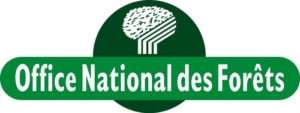Managing more than 405 km of Guadeloupe’s coastline (out of the 630 that make up the archipelago), the National Forestry Office intervenes to ensure the sustainable and multifunctional management of the Guadeloupean coastline. One of the particularities of these fragile coastlines is their extreme narrowness (initially 81.2 m for the 50 geometric steps).
This coastal strip hosts major challenges in terms of biodiversity, and public reception, because the frequentation is important throughout the year. Faced with erosion and contrary to metropolitan coastlines which benefit from a fairly wide accommodation space behind, this 50-step zone is constrained and has no capacity to move backwards or backwards. The preservation of ecosystems and the ecosystem services rendered is therefore strongly conditioned by the most efficient possible preservation of a sandy stock on the beach.
The objective is then to see how certain principles of soft management by plant engineering implemented on soft coasts could possibly be adapted to the Caribbean context. The CARIB-COAST project, through its collective action, is fully in line with the ONF missions and could enable us to draw up a methodological guide, supported by field experimentation, aimed at better coastal management.


